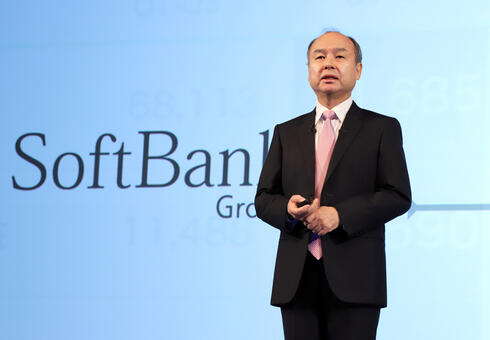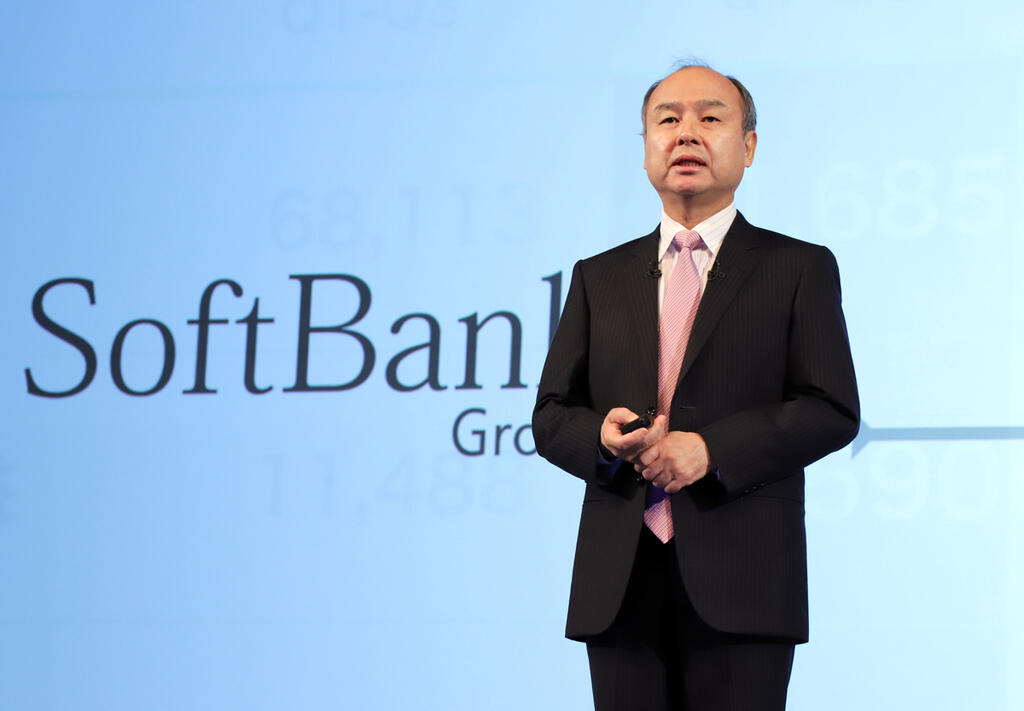
Analysis
Cybereason and Rapid are paying the price for SoftBank’s mistakes
The collapse of Cybereason’s value by 90% along with the layoffs of half of the employees and the replacement of the CEO at Rapid are two more milestones in the crisis engulfing Israeli high-tech. However, these two companies have another common denominator: Belonging to SoftBank's portfolio
"The company tried to compete on too many fronts and markets at the same time." This sentence was written by Marc Friend, the new CEO of Israeli-founded unicorn Rapid (formerly Rapid API) in a message sent to employees announcing the layoff of half of them.
The new American CEO, who took office last week, explained that 115 of the company’s employees and also the founder Iddo Gino are paying the price for Rapid’s uncontrollable push for growth.
It is likely that Friend, who came to Rapid a few months ago as the CFO, is right. Most likely, when he landed at the company and went through its books, he was shocked in light of the extravagance and the attempt to fire in all directions that characterized Rapid in recent years.
But Rapid, like Cybereason, which has seen its value drop from about $3 billion to around $300 million and is busy laying off hundreds of employees, are just a symptom. They are another version (on a smaller scale fortunately for their employees and customers) of WeWork or Compass founded by Israelis Adam Neumann and Ori Allon, respectively.
The symptom common to all of them is SoftBank, the giant Japanese investment body of Masayoshi Son (Masa) that is already considered one of the main symbols of the tech bubble of 2021. What Friend now recognizes as a serious strategic mistake by Rapid, and like him surely Eric Gan of SoftBank, the incoming CEO of Cybereason, who replaced founder Lior Div, is exactly what SoftBank has demanded from its portfolio companies over the past few years. "Run as fast as possible, burn as much money as necessary, just take control of the market. Everything else will be taken care of later," was the mantra preached by Masa.
At Adam Neumann's WeWork, this reached an extreme that was even documented in books and TV series, but what has been happening in the Israeli ecosystem over the past week is another testament to the shattering of Masa's vision.
It is already possible to give a very simple name to SoftBank's business model in its Vision Fund, which is its investment arm in high-tech companies: zero interest. At this point there doesn't seem there was much sophistication beyond that. SoftBank showered money on companies with little diligence, becoming the most active investor in global high-tech in 2021 with investments reaching $35 billion that year. In the first five years since it stormed into high-tech investments in 2017, the fund invested a whopping $144 billion in hundreds of companies.
Now that the interest rate is far from zero, a look at SoftBank's Israeli portfolio is similar to its general portfolio in that it is full of layoffs, cuts, strategic direction shifts and the replacement of CEOs. In Israel, the last point is particularly noticeable and it actually started with quieter moves like the replacement of the Israeli CEOs and founders of Trax with the completion of the huge $640 million funding round led by Softbank in 2021. Redis recently nominated a new American CEO, and Ofer Bengal, its founder, and CEO for the last 12 years, was nominated as the company's Chairman.
Even in eToro, which was forced to call off its SPAC merger that was supposed to take place at a value of about $10 billion dollars, SoftBank has been using a stick rather than a carrot, leading a funding round at a value of $3.5 billion in March. Another SoftBank-backed company, Stream Elements, fired almost half of its employees in two rounds of 100. At this point, the only companies from SoftBank's Israeli portfolio that are keeping their heads above water and escaping Masa's wrath are Wiliot and Claroty.
It is interesting to examine SoftBank's moves compared to the two other funds that were most active alongside it during the high tide years - Tiger Global, which was in second place in Israel, and Insight Partners, which was in third place. The operating methods of all three are completely different - Tiger Global, which was unable to change its thinking from the public market in which it historically operated to the private one, simply disappeared. It is hardly involved in its portfolio companies, the new investments are frozen, and according to some reports it is even looking for a buyer for its private portfolio.
Insight represents the other end with deep involvement in the portfolio companies, but at this stage compared to SoftBank it is portrayed as more patient. Although quite a few rounds of layoffs were also held in its portfolio companies, most of the managers are in place for the time being, except for Amir Orad, who left the CEO seat of Sisense last week.
Part of Masa's aggressiveness compared to Tiger Global or Insight, stems from the fact that SoftBank is a public company whose unprecedented losses are visible to all. Tiger Global's heavy losses as a hedge fund were also exposed, but it is not a stock that is traded on a daily basis. Insight reports only to its investor group and thus succeeds in keeping the performance a secret.
On the other hand, SoftBank shares continue to fall and since the beginning of 2023 have lost another 10%. In the fourth quarter of 2022, the group lost $6 billion and this was even a certain improvement compared to a loss of $10 billion in the quarter that preceded it. Masa himself did not participate in the conference call with investors after the release of the annual reports, for the first time in SoftBank's history, but was quoted from closed conversations as saying that some of the founders are still not ready to acknowledge the reality of the new value levels.
Against this background, it is easy to understand the latest developments in SoftBank's Israeli unicorns. It also means that all the other founders of its portfolio companies need to be extra vigilant if they want to keep their jobs. Masa, 65, has gone from an offensive game plan in which he invested an average of $6 billion a quarter in startups to a defensive game plan with investments of only $350 million in recent quarters, giving him much more time to crunch numbers and cut off heads.
In the case of Cybereason, which completed a funding round at a tenth of the value compared to its previous round, and also in the case of eToro, which suffered a significant drop in value compared to its planned IPO, this has worked. SoftBank's new strategy is indeed difficult for the new generation of founders, but it is not necessarily bad. Not everyone who has a great idea for technology is suitable to manage a large company and sometimes moving the entrepreneurs aside is necessary to allow the company to develop. The case of SoftBank is simply more jarring than others because once again there is a feeling that this is not really a strategy, but a panicked reaction to the new reality that no one stopped to think about ahead of time.















